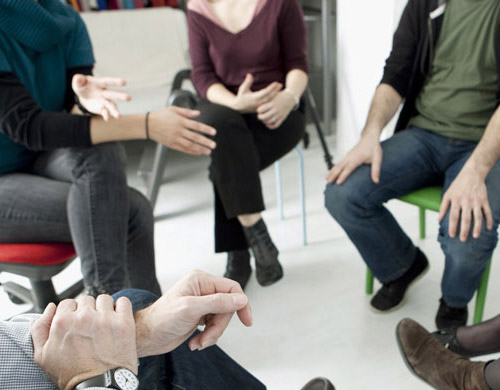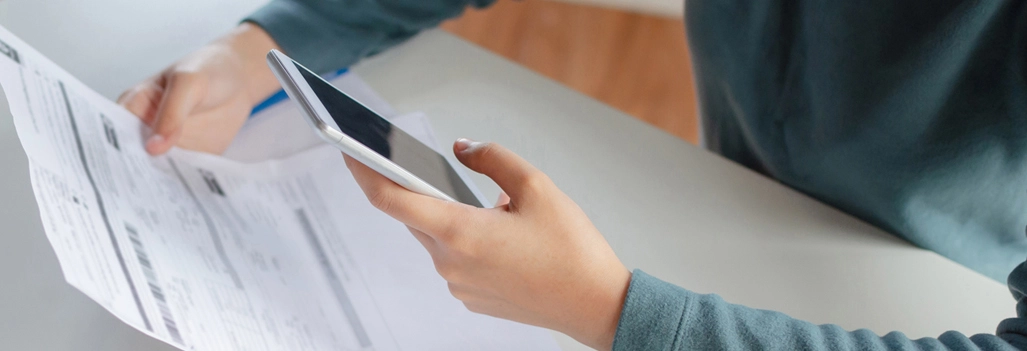It can be so lonely when you or a loved one has a problem with alcohol or drug addiction, that you don’t know how to help. By using professional treatment services it is possible to treat addiction just like other diseases and achieve long term recovery.
We will detail how addiction recovery is achievable for you or a loved one if an integrated treatment approach is adopted.
What is Addiction Rehab (Rehabilitation)?
Addiction ‘rehab’ is a holistic treatment plan that utilizes both counseling and medical interventions to treat drug addiction & prescription drug addiction. Addiction Rehab is most effective when it is tailored to suit your unique lifestyle involving a medical detox, residential and outpatient care, as well as aftercare support.

Facts & Statistics about Addiction in Danville
Prevalence of Substance Use Disorder, by Drug Type
(IN THOUSANDS)
- 2,7578.5%Any Substance
- 2,0886.4%Alcohol
- 1,0683.3%Ilicit Drugs
- 2060.6%Pain Medication
Drug- and Alcohol-Induced Deaths by Age Group, California, 2016
- Alcohol-Induced
- Drug-Induced
- 18 to 250.5
- 9.6
- 26 to 354.3
- 13.9
- 36 to 6424.2
- 22.9
- 65+23.7
- 9.4
Drug Use, by Selected Type and Age Group California, 2015 to 2016
- 12 to 17
- 18 to 25
- 26+
- Marijuana*13.2%
- 34.0%
- 13.5%
- Misuse of Pain Medications3.5%
- 8.0%
- 4.3%
- Cocaine0.8%
- 7.2%
- 1.8%
- Heroin0%
- 0.4%
- 0.2%
What are the treatment options available in Danville?
An integrated approach is considered the most effective way to tackle and recover from the underlying causes of drug addiction and alcohol addiction. Through learning healthy coping mechanisms you can address the causes of substance abuse while you treat the main symptoms of dependence.

Private Residential Programs
When staying on the same property that you are receiving your rehab treatments in, you are said to be in a residential rehab program. A primary benefit is the ability to have holistic support and treatment every day. If you live at a rehab facility you are away from many of the stressors in your home environment that could influence your substance dependency.
By choosing to stay in a safe environment that is designed to be supportive, you have a better chance of completing your rehab program while avoiding relapse and its potential pitfalls. If you struggle with co-occurring disorders, dual diagnosis or a strong dependency on drugs or alcohol, an inpatient program is better suited to meet your treatment needs. We understand that the first few months of recovery are pivotal and after a residential rehab program, you will need to stay focused in order to maintain long term recovery. Once the inpatient program is complete you will learn how to be more independent and your focus will be on your new journey and the things you want to achieve from life.
Do You Need Help?
We work together towards sobriety.

Sober Living Programs
Sober living rehab programs enable you to have more stability in your life, with guidance and supportive structures. The programs include:
- Sending a house manager to see how you are doing daily
- Fostering the sorts of behaviors that are acceptable in recovery
- Working on supportive and positive relations with others in recovery
Outpatient Programs
By engaging in an outpatient program you have greater flexibility, because you can visit the rehab center for treatment weekly and continue family or work commitments.
Outpatient programs typically offer:
- Education on the abuse of drugs
- Group therapy and individual sessions as drivers for therapeutic intervention – You must be enrolled in an outpatient program for at least three months, and may continue the program for longer than a year if required.
Detox Only Programs
The early stage of any treatment program is detoxification, which removes any substances from your body and tackles your dependency on it. You will develop withdrawal symptoms as a normal response to the absence of the substance in your body.
This is only the beginning of the rehabilitation process, and the next steps are to identify and manage the underlining reasons for your addiction, so that the pattern does not continue. Detox can lead to some cravings and withdrawal symptoms for some time after your drug or alcohol detox phase has ended. During rehab therapy you will identify the coping skills for long-term recovery, so that you can avoid relapse in the future.
Paying for Private Treatment
Private treatment must be to be paid with your own funds or claimed from your insurance provider. A large percentage of health insurance providers will cover some of the costs of rehab, which includes drug or alcohol detox, the rehab program, medical supplies and aftercare and support. The amount you will be able to claim will be determined by your policy rules and your provider.
We advise that you check to see the amount you can claim on your policy before enrolling in a program. Our Verify Your Insurance page – https://www.unitedrecoveryca.com/verify-your-insurance/ – will determine the amount of cover you can claim against.
If you do not claim against your health insurance you must pay the center directly for your rehab treatment. Many rehab providers provide payment options to clients when costs are unaffordable.
State Funded Programs
State-funded rehab programs were created to support individuals without the financial means to recover from alcohol or substance use disorder. By using funds from state and federal sources including Medicaid, these programs may provide treatments including:
- Programs for a safe detox (medically-supervised if required.
- Rehab programs and extended support services
State-funded rehab programs are accessible to individuals who do not have private health insurance or who live in low income households. When applying you will need:
- Proof of who you are and where you live
- Proof of finances
- Details about your addiction from your medical history and information about your substance issues
- Proof that you have the legal right to live and remain in the US
Visit https://www.grants.gov/ for more details about the application process. You can also download this file – https://www.samhsa.gov/sites/default/files/single-state-agencies-directory-08232019.pdf – to find contact details for your state agency.

The following state-funded addiction rehab programs are available in Danville:
Diablo Valley Drug and Alcohol Services
111 Deerwood Road,Suite 235 , San Ramon, CA 94583
925-289-1430
https://www.diablovalleytreatment.com/Diablo Valley Drug and Alcohol Services
100 Park Place,Suite 120 , San Ramon, CA 94583
925-289-1430
https://www.diablovalleytreatment.com/Bright Heart Health
2960 Camino Diablo,Suite 105 , Walnut Creek, CA 94597
800-892-2695
https://www.brighthearthealth.com/
Maintaining Addiction Recovery in Danville
Maintaining addiction recovery can be a challenge once you finish your treatment programme. During your stay, you have been in a controlled and safe environment, supported by professionals. When you depart rehab there will be some new challenges that you will have to learn to cope with.
Long term sobriety is more difficult to maintain when you have had a severe dependency and do not have social support when you leave rehab. If you don’t have aftercare support or guidance in the initial stages of recovery, relapse can occur.
The following AA/NA meetings are available in Danville:
CA - Discovery Counseling Center Of San Ramon Valley, Inc. Treatment and Prevention
Wheelchair accessibility and Parking for handicap:
115 Town & Country Dr., #A, Danville, CA 94526
Monday to Friday: 9:00 AM to 5:00 PM
https://www.contracosta.ca.gov/Danville Congregational Church – Danville
Open Men Format Varies:
989 San Ramon Valley Boulevard, Danville, CA 94526
Saturday: 7:45 AM
https://findrecovery.com/Peace Lutheran Church – Danville
3201 Camino Tassajara, Danville, CA Open Speaker
Tuesday: 7:00 PM
https://findrecovery.com/
Aftercare & Alumni Programs
Aftercare programs extend your rehab program once you return to your daily life. As many as 60% of clients in recovery will relapse due to unpredictable life challenges, taking part in aftercare programs can boost your chance of staying sober.

As you approach the end of your rehab program, you will be asked about the therapies and services that will facilitate long-term recovery, and we will create an aftercare program to protect you. After you have completed your rehab program you will become eligible for joining an alumni community program so you can stay close to staff and others in recovery. Through this network you will be able to attend fun events and receive support and advice from other former clients who are in recovery as well. This gives you an ideal opportunity to reciprocate and offer encouragement to other former clients.
Support Groups (Fellowship Meetings)
Through support group sessions you can create a support structure that is helpful to your long-term sobriety. With the support of groups like Narcotics Anonymous or Alcoholics Anonymous, you will continue the 12-step model and attend regular meetings for ongoing support.
You will learn from lived experiences of others and share your own unique perspectives. Many individuals in recovery attend local meetings to assist them in their recovery journey. Support groups provide them with the important tools to maintain sobriety, allowing them to be accountable for their actions to themselves and others.
Support for Families & Children Affected by Addiction
Addiction negatively impacts those living in the family unit to different degrees. Support and guidance is just as vital for the family members as it is for the person with the substance use disorder. Family support groups teach you and your loved ones affective coping tools for your own life and allow you to offer greater support to the loved one who has the dependency.
Family members will benefit from joining support groups such as:
- Parents of Addicted Loved Ones
- SMART Recovery Family & Friends
- NAMI Family Support Groups
- Al-Anon
- Families Anonymous
- Alateen
- Nar-Anon










